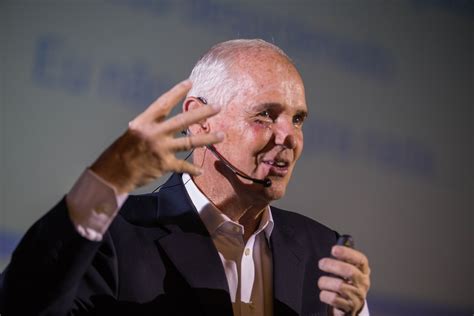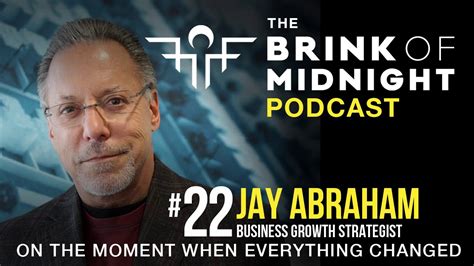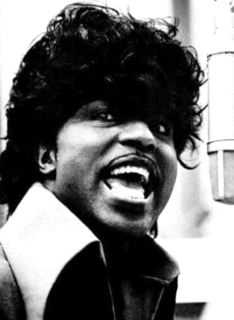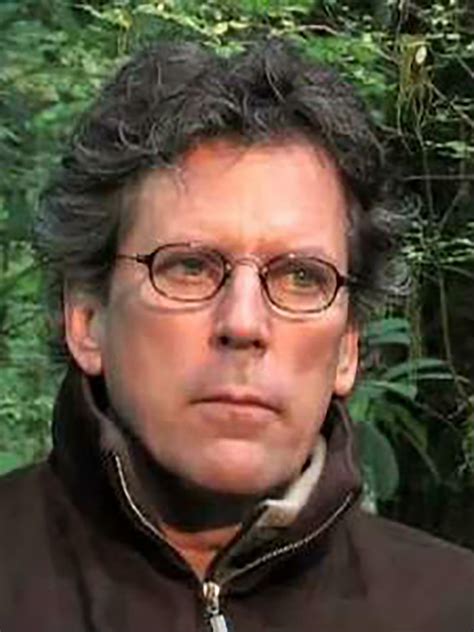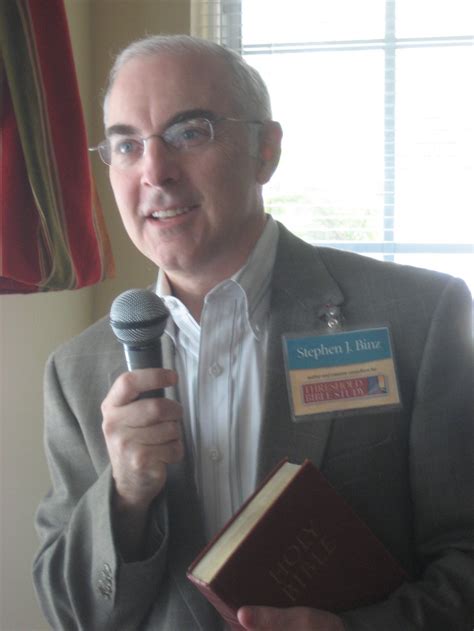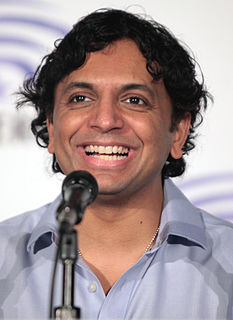Top 447 Phrases Quotes & Sayings - Page 7
Explore popular Phrases quotes.
Last updated on April 21, 2025.
I've spent years studying words. Linguistics, language, the power of words, the power of phrases on human beings. All of that. It's part of my, almost obsessive, fascination. It turns out that there are some keys that we all need to know about how conversations impact us, because they do at a chemical level. There are certain things that if we learned this, it would totally change our interactions with others, and that's the following. There are certain words that have a feeling of, "I love you, I care for you, you're in my tribe."
Both Arthur Ashe and Billie Jean King used these phrases ("playing out of one's mind," or "over one's head") to describe their performances while winning tghe finals at Wimbledon in 1975. . . . The player loses himself in the action, continually breaki g the false limits placed on is potential. Awareness becomes acutely heightened, while analysis, anxiety and self-conscious thought are compoletly forgotten. Enjoyment is at a peak - pure and unspoiled.
Government is not a solution to our problem, government is the problem. ... Government does not solve problems; it subsidizes them. Government's view of the economy could be summed up in a few short phrases: If it moves, tax it. If it keeps moving, regulate it. If it stops moving, subsidize it. ... The problem is not that people are taxed too little, the problem is that government spends too much.
Consider the word “time.” We use so many phrases with it. Pass time. Waste time. Kill time. Lose time. In good time. About time. Take your time. Save time. A long time. Right on time. Out of time. Mind the time. Be on time. Spare time. Keep time. Stall for time. There are as many expressions with “time” as there are minutes in a day. But once, there was no word for it at all. Because no one was counting. Then Dor began. And everything changed.
I grunted. It's something I picked up over a fifteen-year career in law enforcement. Men have managed to create a complex and utterly impenetrable secret language consisting of monosyllabic sounds and partial words—and they are apparently too thick to realize it exists. Maybe they really are from Mars. I'd been able to learn a few Martian phrases over time, and one of the useful ones was the grunt that meant "I acknowledge that I've heard what you said; please continue.
Go for broke. Always try and do too much. Dispense with safety nets. Take a deep breath before you begin talking. Aim for the stars. Keep grinning. Be bloody-minded. Argue with the world. And never forget that writing is as close as we get to keeping a hold on the thousand and one things--childhood, certainties, cities, doubts, dreams, instants, phrases, parents, loves--that go on slipping , like sand, through our fingers.
I think, then, there's the sort of, like, political dimension to lyrics. One of the problems that I've had with my output as a lyric writer is that I look back at it and there's some turn-of-phrases and some images and some kind of montage-y kinds of things I'm really proud of. But it kind of bums me out that people have told me again and again that they don't really understand what I'm trying to say.
When all the words have been written, and all the phrases have been spoken, the great mystery of life will still remain. We may map the terrains of our lives, measure the farthest reaches of the universe, but no amount of searching will ever reveal for certain whether we are all children of chance or part of a great design. And who among us would have it otherwise? Who would wish to take the mystery out of the experience of looking into a newborn infant's eyes?
Desperate times call for desperate measures" is an aphorism which here means "sometimes you need to change your facial expression in order to create a workable disguise." The quoting of an aphorism, such as "It takes a village to raise a child," "No news is good news," and "Love conquers all," rarely indicates that something helpful is about to happen, which is why we provide our volunteers with a disguise kit in addition to helpful phrases of advice.
I earnestly wish to point out in what true dignity and human happiness consists. I wish to persuade women to endeavor to acquire strength, both of mind and body, and to convince them that the soft phrases, susceptibility of heart, delicacy of sentiment, and refinement of taste, are almost synonymous with epithets of weakness, and that those beings are only the objects of pity, and that kind of love which has been termed its sister, will soon become objects of contempt.
I knew I had to have a hit. I would get no more chances. Analyzing what they had in common I discovered they had many similar elements: harmonic rhythm, placement of the chord changes, choice of harmonic progressions, similar instrumentation, vocal phrases, drum fills, content, even the timbre of the lead solo voice. I decided to write a song that incorporated all these elements in one record.
It is obvious enough for the reader to conclude, "She loves young Emerson." A reader in Lucy's place would not find it obvious. Life is easy to chronicle, but bewildering to practice, and we welcome "nerves" or any other shibboleth that will cloak our personal desire. She loved Cecil; George made her nervous; will the reader explain to her that the phrases should have been reversed?
The theory of Marx, Engels, Lenin and Stalin is universally applicable. We should regard it not as a dogma, but as a guide to action. Studying it is not merely a matter of learning terms and phrases but of learning Marxism-Leninism as the science of revolution. It is not just a matter of understanding the general laws derived by Marx, Engels, Lenin and Stalin from their extensive study of real life and revolutionary experience, but of studying their standpoint and method in examining and solving problems.
In the beginning the Gods made man, and fashioned the sky and the sea, And the earth's fair face for man's dwelling-place, and this was the Gods' decree: "Lo, We have given to man five wits: he discerneth folly and sin; He is swift to deride all the world outside, and blind to the world within: So that man may make sport and amuse Us, in battling for phrases or pelf, Now that each may know what forebodeth woe to his neighbor, and not to himself.
To write or even speak English is not a science but an art. There are no reliable words. Whoever writes English is involved in a struggle that never lets up even for a sentence. He is struggling against vagueness, against obscurity, against the lure of the decorative adjective, against the encroachment of Latin and Greek, and, above all, against the worn-out phrases and dead metaphors with which the language is cluttered up.
I fight against the gluttony of time with so many very amusing weapons with gestures and with three attitudes and with charming phrases; with tears and with tinsel, and with sugar-coated pills, and with platitudes slightly regilded. Yes, and I fight him also with little mirrors wherein gleam confusedly the corruptions of lust, and ruddy loyalty, and a bit of moonshine, and the pure diamond of the heart's desire, and the opal cloudings of human compromise: but, above all, I fight that ravening dotard with the strength of my own folly.
Sam Vimes could parallel process. Most husbands can. They learn to follow their own line of thought while at the same time listening to what their wives say. And the listening is important, because at any time they could be challenged and must be ready to quote the last sentence in full. A vital additional skill is being able to scan the dialogue for telltale phrases such as "and they can deliver it tomorrow" or "so I've invited them for dinner?" or "they can do it in blue, really quite cheaply.
The amazing thing about Sweets [Edison] was that he exactly spoke the way that he played! He was really unique, the one and only. He was one of the greatest Blues players that I ever heard and played with. Nobody can play like Sweets man, nobody! Most of us, musicians, frequently quote Sweets' phrases in our solos. Like Lester Young, Sweets had a big influence on us musicians, especially when we play some Blues.
While [the Arians], like men sprung from a dunghill, truly "spoke from the earth" [Jn. 3:31], the bishops [of Nicea], not having invented their phrases for themselves, but having testimony from their fathers, wrote as they did. For ancient bishops, of the great Rome and our city [i.e., Alexandria, Egypt, where Athanasius was bishop], some 130 years ago, wrote and censured those who said that the Son was a creature and not consubstantial with the Father.
I had always imagined Rosa Parks as a stately woman with a bold temperament, someone who could easily stand up to a busload of glowering passengers. But when she died in 2005 at the age of ninety-two, the flood of obituaries recalled her as soft-spoken, sweet, and small in stature. They said she was "timid and shy" but had "the courage of a lion." They were full of phrases like "radical humility" and "quiet fortitude.
When I use a name or place, I want to leave the reader open to the waterfall of determinacy that it may provoke. And I don't know, but I must mention the name Borges. I try to mention it in every one of my works. It's a mark, a stamp, a sort of homage to Argentinidad. But it's an homage that works through pat phrases, those stock images that populate his work: the night, labyrinths, libraries. That is, I don't want simply to pay homage to Borges, but rather the contrary: to recall his commonplaces.
That the religious right completely took over the word Christian is a given. At one time, phrases such as Christian charity and Christian tolerance were used to denote kindness and compassion. To perform a "Christian" act meant an act of giving, of acceptance, of toleration. Now, Christian is invariably linked to right-wing conservative political thought -- Christian nation, Christian morality, Christian values, Christian family.
My needs were simple I didn't bother much with themes or felicitous phrases and skipped fine descriptions of weather, landscapes and interiors. I wanted characters I could believe in, and I wanted to be made curious about what was to happen to them. Generally, I preferred people to be falling in and out of love, but I didn't mind so much if they tried their hand at something else. It was vulgar to want it, but I liked someone to say 'Marry me' by the end.
I think Nigerians got it wrong from independence as people became so conscious of the divisions because we wanted so much to satisfy the plurality of interests. I will say, we neglected the importance of real value, human value and the quality of potential in human beings and we contrived phrases like geographical spread, regional quota, etc and allowed mediocrity to reign. I think that is the problem that we are dealing with till today.
I was under twenty when I deliberately put it to myself one night after good conversation that there are moments when we actually touch in talk what the best writing can only come near. The curse of our book language is not so much that it keeps forever to the same set phrases . . . but that it sounds forever with the same reading tones. We must go out into the vernacular for tones that haven't been brought to book.
Naturally Shirley had known, as they slid stock words and phrases back and forth between them like beads on an abacus, that Howard must be as brimful of ecstasy as she was; but to express these feelings out loud, when the news of death was still fresh in the air, would have been tantamount to dancing naked and shrieking obscenities, and Howard and Shirley were clothed, always, in an invisible layer of decorum that they never laid aside.
Imagine a city where graffiti wasn't illegal, a city where everybody could draw whatever they liked. Where every street was awash with a million colours and little phrases. Where standing at a bus stop was never boring. A city that felt like a party where everyone was invited, not just the estate agents and barons of big business. Imagine a city like that and stop leaning against the wall - it's wet.
I discovered a version of the sinner's prayer that increased my faith far more than the one that I had said years earlier...In this version, there were no formulas, no set phrases that promised us safe passage across the abyss. There was only our tattered trust that the Spirit who had given us life would not leave us in the wilderness without offering us life again.
This writer, who is horribly perspicacious and vigorous, demonstrates the certainty of a great European war, and regards it with the peculiar satisfaction excited by such things in a certain order of mind. His phrases about "dire calamity" and so on mean nothing; the whole tenor of his writing proves that he represents, and consciously, one of the forces which go to bring war about; his part in the business is a fluent irresponsibility, which casts scorn on all who reluct at the "inevitable." Persistent prophecy is a familiar way of assuring the event.
Before the scene, before the paragraph, even before the sentence, comes the word. Individual words and phrases are the building blocks of fiction, the genes that generate everything else. Use the right words, and your fiction can blossom. The French have a phrase for it - le mot juste - the exact right word in the exact right position.
Make your copy straightforward to read, understand and use. Use easy words; those that are used for everyday speech. Use phrases that are not too imprecise and very understandable. Do not be too stuffy; remove pompous words and substitute them with plain words. Minimize complicated gimmicks and constructions. If you can't give the data directly and briefly, you must consider writing the copy again.
For time not only moves inexorable forward, as the underlying grid to our personal chronicle, but is manipulated by our psychic needs and natures into various images of timelessness and timeliness. Transient moments suddenly expand, visions of infinity intervene, notes and phrases become outlets of fantasy, escape, recollection, or omen. The music travels on two planes, chronological time and psychological time. Both planes are essential and must be abundantly represented.
My true belief about Rock 'n' Roll--and there have been a lot of phrases attributed to me over the years--is this: I believe this kind of music is demonic. ... A lot of the beats in music today are taken from voodoo, from the voodoo drums. If you study music in rhythms, like I have, you'll see that is true. I believe that kind of music is driving people from Christ. It is contagious
And a lot of the technique and the little T-Bone phrases that define his style, Chuck Berry, when he rearranged the beat, they became rock 'n roll guitar licks. So in essence, T-Bone was not only the first electric blues guitar player, but he was the first electric rock 'n roll guitar player, really.
It was love, she thought, love that never clutch its object; but, like the love which mathematicians bear their symbols, or poets their phrases, was meant to be spread over the world and become part of human gain. The world by all means should have shared it, could Mr Bankes have said why that woman pleased him so; why the sight of her reading a fairy tale to her boy had upon him precisely the same effect as the solution of a scientific problem.
In a head-on collision with Fanatics, the real problem is always the same: how can we possibly behave decently toward people so arrogantly ignorant that they believe, first, that they possess Christ's power to bestow salvation, second, that forcing us to memorize and regurgitate a few of their favorite Bible phrases and attend their church is that salvation, and third, that any discomfort, frustration, anger or disagreement we express in the face of their moronic barrages is due not to their astounding effrontery but to our sinfulness?
People speak because they are afraid of silence. They speak mechanically whether aloud or to themselves. They are intoxicated by this vocal gruel that ensnares every object and every being. They talk about rain and fine weather; they talk about money, about love, about nothing. And even when they are talking about their most exalted love, they use words uttered a hundred times, threadbare phrases.
The defect in wisdom and taste which exists among the majority of dancers is due to the bad education which they generally receive. They apply themselves only to the material side of their art, they learn to jump more or less high, they strive mechanically to execute a number of steps, and like children, who utter a great many words devoid of sense and relation, they execute many phrases of steps devoid of taste and grace.
There is a value in repetition. When we repeat certain phrases and even actions, like fingering prayer beads, we create a quiet rhythm within our spirits. The beating of our heart is a repetition as is the rhythm of our breathing. All of life has its rhythms, and the repetition of familiar prayers can bring our interior spirits into harmony with the Divine Heartbeat and the breathing of the Divine Christ.
WARNING: The following is a transcript of a digital recording. In certain places, the audio quality was poor, so some words and phrases represent the author's best guesses. Where possible, illustrations of important symbols mentioned in the recording have been added. Background noises such as scuffling, hitting, and cursing by the two speakers have not been transcribed The author makes no claims for the authenticity of the recording. It seems impossible that the two young narrators are telling the truth, but you, the reader, must decide for yourself.
Waves of hands, hesitations at street corners, someone dropping a cigarette into the gutter-all are stories. But which is the true story? That I do not know. Hence I keep my phrases hung like clothes in a cupboard, waiting for some one to wear them. Thus waiting, thus speculating, making this note and then an· other I do not cling to life. I shall be brushed like a bee from a sunflower. My philosophy, always accumulating, welling up moment by moment, runs like quicksilver a dozen ways at once.
People have learned by bitter experience that the "European fraternal union of peoples" cannot be achieved by mere phrases and pious wishes, but only by profound revolutions and bloody struggles; they have learned that the question is not that of a fraternal union of all European peoples under a single republican flag, but of an alliance of the revolutionary peoples against the counter-revolutionary peoples, an alliance which comes into being not on paper, but only on the battlefield.
In the higher walks of politics the same sort of thing occurs. The statesman who has gradually concentrated all power within himself ... may have had anything but a public motive... The phrases which are customary on the platform and in the Party Press have gradually come to him to seem to express truths, and he mistakes the rhetoric of partisanship for a genuine analysis of motives... He retires from the world after the world has retired from him.
Someone once said that "The Waste Land" was a scum of poetry floating on a sea of footnotes. That resonated with me, because that's kind of what I was doing lyrically for a while. I was being very referential in a way. I would drop in these little phrases or ideas that were sort of portholes into a whole bigger realm of thought or whatever, that would work within the song, but that you could also poke through into a bigger discussion.
George: 'Ringo would always say grammmatically incorrect phrases and we'd all laugh. I remember when we were driving back to Liverpool from Luton up the M1 motorway in Ringo's Zephyr, and the car's bonnet hadn't been latched properly. The wind got under it and blew it up in front of the windscreen. We were all shouting, 'Aaaargh!' and Ringo calmly said, 'Don't worry, I'll soon have you back in your safely-beds.
The difference between an admirer and a follower still remains, no matter where you are. The admirer never makes any true sacrifices. He always plays it safe. Though in words, phrases, songs, he is inexhaustible about how highly he prizes Christ, he renounces nothing, gives up nothing, will not reconstruct his life, will not be what he admires, and will not let his life express what it is he supposedly admires.
The house as I say ... smelled of brisket and bourbon, so you could hear that. I started imitating them. Phrases came out of that, "Can't you dig that?" "I knew that you would." We were at [Passover] Seders and they were confused with the bitter herbs, "Do we smoke these or do we do we dip them in salt water?" "We dip them in salt water, well that's gonna kill the vibrancy of the weed, you know." So that's what I was around. So I would imitate them. That's where it all started.
As a child, I probably knew phrases that other children didn't known, like "pitocin drip" or "myocardial infarction." Some kind of knowledge was always in the air. My parents would always talk about science at the dinner table, saying something about this patient or some other patient. So I guess for a nanosecond in early high school, I thought about going into medicine.
This particular one was very, very heartwarming and is the relationship of an older man and a young boy that are essentially on the run. And so yeah, as I say, Barry Crump wrote a lot of books and this one got into the hands of Taika Watiti who then writing the screenplay decided to really vamp up if that's the word, or ramp up and modernize certain phrases - getting in the humor. So he added a lot of a real comedy perspective onto it which is what I think the story needed anyway, especially for it to turn into a film. And it worked.
A conditioned mind may be inventive; it may think up new ideas, new phrases, new gadgets; it may build a dam, plan a new society, and all the rest of it; but that is not creativity. Creativity is something much more than the mere capacity to acquire a technique. It is because this extraordinary thing called creativity is not in most of us that we are so shallow, empty, insufficient. And only the mind that is free can be creative.
His (Swami Vivekananda) words are great music, phrases in the style of Beethoven, stirring rhythms like the march of Handel choruses. I cannot touch these sayings of his, scattered as they are through the pages of books, at thirty years' distance, without receiving a thrill through my body like an electric shock. And what shocks, what transports, must have been produced when in burning words they issued from the lips of the hero!
Most boys or youths who have had much knowledge drilled into them, have their mental capacities not strengthened, but overlaid by it. They are crammed with mere facts, and with the opinions and phrases of other people, and these are accepted as a substitute for the power to form opinions of their own. And thus, the sons of eminent fathers, who have spared no pains in their education, so often grow up mere parroters of what they have learnt, incapable of using their minds except in the furrows traced for them.
Indeed Christianity passes. Passes - it has gone! It has littered the beaches of life with churches, cathedrals, shrines and crucifixes, prejudices and intolerances, like the sea urchin and starfish and empty shells and lumps of stinging jelly upon the sands here after a tide. A tidal wave out of Egypt. And it has left a multitude of little wriggling theologians and confessors and apologists hopping and burrowing in the warm nutritious sand. But in the hearts of living men, what remains of it now? Doubtful scraps of Arianism. Phrases. Sentiments. Habits.
When one watches some tired hack on the platform mechanically repeating the familiar phrases - bestial atrocities, iron heel, blood-stained tyranny, free peoples of the world, stand shoulder to shoulder - one often has a curious feeling that one is not watching a live human being but some kind of dummy, the appropriate noises are coming out of his larynx, but his brain is not involved
Perhaps it is not-being that is the true state, and all our dream of life is inexistent; but, if so, we feel that these phrases of music, these conceptions which exist in relation to our dream, must be nothing either. We shall perish, but we have as hostages these divine captives who will follow and share our fate. And death in their company is somehow less bitter, less inglorious, perhaps even less probable.
I think, as we go through life, we can sometimes, while still staying essentially true to ourselves, pick up mannerisms or modes of expression that are like curlicues. And there was a lot of that that I recognized sometimes. And I remembered, sometimes dimly, why those phrases felt so tasty to me, why that particular curl felt so good to me. But from my point of view now, it was almost inaccurate. It changed the meaning of what I was saying in a way that it seemed like a distortion.
Young love-making--that gossamer web! Even the points it clings to--the things whence its subtle interlacings are swung--are scarcely perceptible: momentary touches of finger-tips, meetings of rays from blue and dark orbs, unfinished phrases, lightest changes of cheek and lip, faintest tremors. The web itself is made of spontaneous beliefs and indefinable joys, yearnings of one life towards another, visions of completeness, indefinite trust.
On a more technical level, a story takes a lot of words. And to generate words and phrases and images and so on, that will compel the reader to continue reading - that stand a chance of really grabbing a reader - the writer has to work out of a place of, let's say, familiarity and affection. The matrix of the story has to be made out of stuff the writer really knows about and likes. The writer can't be stretching and (purely) inventing all the time. Well, I can't, anyway.

